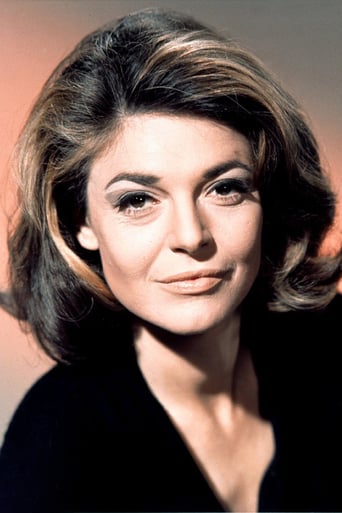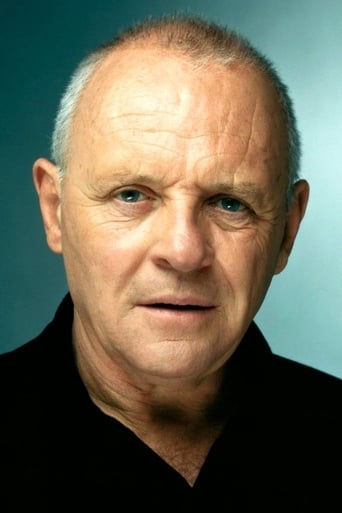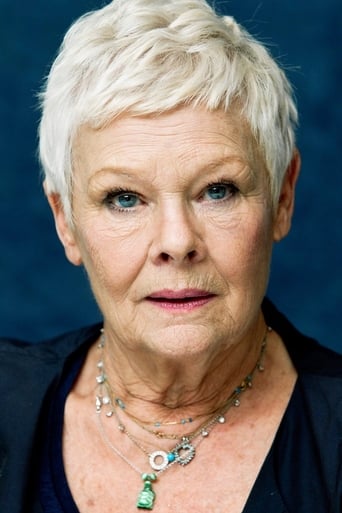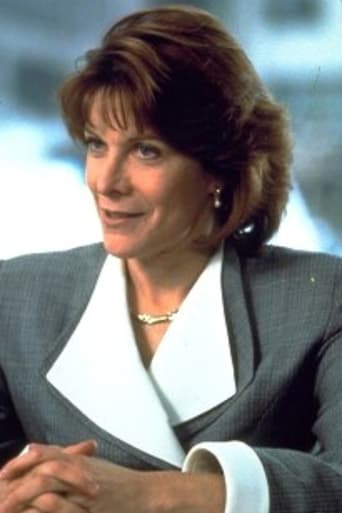Diagonaldi
Very well executed
Raetsonwe
Redundant and unnecessary.
Aubrey Hackett
While it is a pity that the story wasn't told with more visual finesse, this is trivial compared to our real-world problems. It takes a good movie to put that into perspective.
Marva
It is an exhilarating, distressing, funny and profound film, with one of the more memorable film scores in years,
Kirpianuscus
a film about friendship. in a special form. about books. about different manner to see the life. and about special refuges against every day pressure. it is not easy to define its source of seduction. the script, the acting, the chain of titles, the letters,her enthusiasm, his polite answers, the flavor of two different places and cultures and personalities. it is seductive, fascinating and touching. and useful for the birth of special emotions. romantic and smart and delicate and precise. best choice for admirers of a cinema of substance and redefine of life basic purpose. for the lovers of old books. and for the fans of great acting. Anne Bancroft and Anthony Hopkins. and sure, in a small role, admirable Helen Mirren. the memory of this film remains long time. with real useful result.
lasttimeisaw
A feel-good film for nostalgic bookworms, adapted from Helene Hanff's 1970 eponymous epistolary memoir, stars two acting legends Anne Bancroft and Anthony Hopkins, and spoilers alert, they never share one single scene together! It is about a transatlantic friendship between two people they have never met, they correspond by letters only. Everything starts in 1949, Helene Hanff (Bancroft) is an American writer living in NYC, feeling frustrated by the deficiency of British literature in the city, she tries her luck with an antiquarian bookshop Marks & Co, located at the titular address in London that does mail order. This initiates not only a 20-year-long friendship between Helene and Frank Doel (Hopkins), the manager of the Marks & Co and a family man with 3 daughters, but with the rest of the staff as well. From ordering books, they start to exchange gift packages, especially when Helene mails the food parcels, which become a sensation for those in the food shortages after WWII in Britain. Through the length of 20 years, they correspond each other discussing literature, their daily life (although Helene's family background is intentionally circumvented), and historical moments such as the coronation of Elizabeth II. The picture is director David (Hugh) Jones' second feature work, one biggest challenge is the running account narration of its source material and wanting cinematic spectacles. So Jones has completely de-dramatized the film, even for the tragedy which completely annihilates the chance of a belated face-to-face encounter between Helene and Frank, it only shows Nora (Dench), Frank's wife, writing a letter with well-handled forbearance; whereas Helene responses the news with superficial composure, restrained shock and sympathetic grief. But that is it, otherwise there is no palpable undulation in the emotional quarter. Instead, Anne Bancroft is jubilantly sprightly in beautifying Helene's monotonous life orbit, an intellectual with good sense of humor, she embraces life fully and it is not so often we can see Ms. Bancroft reveal this facet of her personality. So she gladly won a BAFTA for BEST ACTRESS for the role (in a time when BAFTA hasn't degraded into a precursor for Oscar race). Hopkins, whose gentleman like bonhomie is also a treat to enjoy, since soon his Hannibal Lector's image would entrench in our general prospect for him. Dench is so unassuming in her supporting duty, yet she and Hopkins' perfect line-readings are purely divine. As a whole, it is not an exciting piece of cinema for my material-leaning taste, however it at least can evoke the nostalgia to appreciate a bygone era when pen-friend-ship can be intimately moving and essentially important during one's life.
classicalsteve
For many years, Charing Cross Road in London was a nucleus for book enthusiasts, particularly for book collectors and bibliophiles. Rare and second-hand bookselling is not one of the more glamorous areas of collectibles trading, as many aspects involve lower-end as well as higher-end selling. Unlike auctions of master paintings and collectible jewelry which often receive much press coverage, antiquarian bookselling often occurs in quiet library-like shops. Customers and proprietors alike speak in low tones amid dimly-lit corridors. "84 Charing Cross Road" brings viewers into the world of antiquarian bookselling and purchasing as no other film does.Anne Bancroft (who played Mrs Robinson in "the Graduate") is a writer habituating the exciting world of the New York scene. To quench her ever-present thirst for reading, she decides she wants to acquire books of an "antiquarian" nature, fine editions which have a bit more elegance than cheap mass-market editions. She also wants to read books of classic English literature rather than simply the latest NY Times Bestseller. She visits her local second-hand bookshops in New York, and none of the proprietors carry the books she seeks because, she is told, they do not have enough demand among NY book buyers. She then hears about a rare and second-hand book firm in London on Charing Cross Road and writes them, hoping they might have the kinds of books she seeks. One of the main purveyors, although not one of the owners of the firm, is Frank Doel, played with an understated civility by the incredible Anthony Hopkins.Thus begins a correspondence between a humble book firm in London and an informal "client" in New York. As the correspondence progresses, she begins to learn more about and understand better the people whose livelihoods center around books. The scenes are mainly split between the contemplative world of the London bookshop and the loud and raucous city that is New York. Even the interactions between characters on each side are quite different. Helene the American is often smoking and boozing with friends while those at the shop quietly but seriously go about their business. Helene the American and Frank the Brit correspond in English, but almost immediately we sense the wide difference in their respective letter-writing styles, their palette of colors quite diverse. The American is direct, blunt, and easily conveys her frustration if a book arrives which does not please her. On the other hand, the Englishman Doel writes in an overtly congenial tone, very low-key and almost formal, and courteous to the point of near-humility. He is never upset or put-off at the occasional brashness of his counterpart's letters but always attempts to make things right if his client is not entirely pleased with her purchase.Then, in an interesting turn, Helene learns of the food rationing that is occurring in Britain largely as a result of the war. She resolves to help the struggling employees of the book through a black market coming out of Denmark. The employees become elated when a special package arrives for them. As a result, Helene and Frank become close in ways almost like a reader and a book, their images and understandings of each other only through words on paper, never through voices or body language. However, although they learn much about each other's lives throughout the correspondence, they never meet, but only can imagine each other's worlds."84 Charing Cross Road" is almost like a play with the correspondence, often spoken in voice-over, as the driving catalyst of the story. The piece is more a character study of the participants rather than having a real plot. But it is one of the few films I know of which celebrates the world of antiquarian booksellers and their prospective book buyers. Unfortunately, since the rise of the internet and the struggling economies in both America and Europe, the presence of second-hand and antiquarian bookshops have been markedly reduced in many urban areas. Charing Cross Road which used to boast many booksellers now has only a handful, which is strangely predicted by the film at the end.
jzappa
I suppose liking or appreciating 84 Charing Cross Road comes down to what one goes to movies to see. This is the case with any movie, obviously, but for any number of kids disappointed by reaching into the trick-or-treat bag and coming up with a granola bar, there are some who like the granola. 84 Charing Cross Road is cinematic granola. It's no Indiana Jones or Casablanca, but that's not to say there's no sense of wonder or adventure. To some viewers, a film about the love of reading and relationship through written correspondence has that. It may not sound like it, but consider that you can't make a movie about people writing to each other and liking or disliking books unless it's about the situations they're in as they write each other, what causes them to do so, and how their passion for literature defines their lives.The characters in this film are indeed human beings, probably more like the people watching it than is the case with most other movies. How implausibly eventful does a person's life have to be without being interesting or emotionally fulfilling? However slight the story arguably is, Anne Bancroft and Anthony Hopkins are nevertheless deeply connected to the people it's about. Emotion and impulse on a salt-of-the-earth human level are the very wheelhouse of Bancroft. Her ability to be emotionally free and available to various nuances of feeling is key to her talent.There is not one false moment in the whole movie. For the invariably impeccable Sir Anthony Hopkins, he gives his performance the texture of real life with the spontaneity and idiosyncrasy of every one of his transitions, every one of his reactions to every emotional event. And though her role is small, Dame Judi Dench is given the difficult task of being there for many of the emotional events in her husband Hopkins' life, and does it modestly, sparingly, realistically and completely in the daintiest handful of scenes.I can argue in favor of 84 Charing Cross Road on a logical level, but at the same time, I still can't say there's anything profound for me to grab onto when I watch it, which is what I tend to desire from pared down human stories. The story blossoms into a chronicle of a beautiful little relationship that leaves a lasting imprint on the lives involved, my experience was that what happens is just life. No situation seems challenging enough to be anything more than the natural progression of the contact between two uneventful people. But that can also be considered a credit to the film. It seems designed to be for someone in particular, not everyone. You can maybe argue that if it were for everybody, it would then be for nobody in particular. Because it speaks to the tastes of a select audience who would be moved by this tale, and because it's thoroughly effective on that level of integrity, it's destined to be a cherished little critic-proof installment in their personal home entertainment collections.





